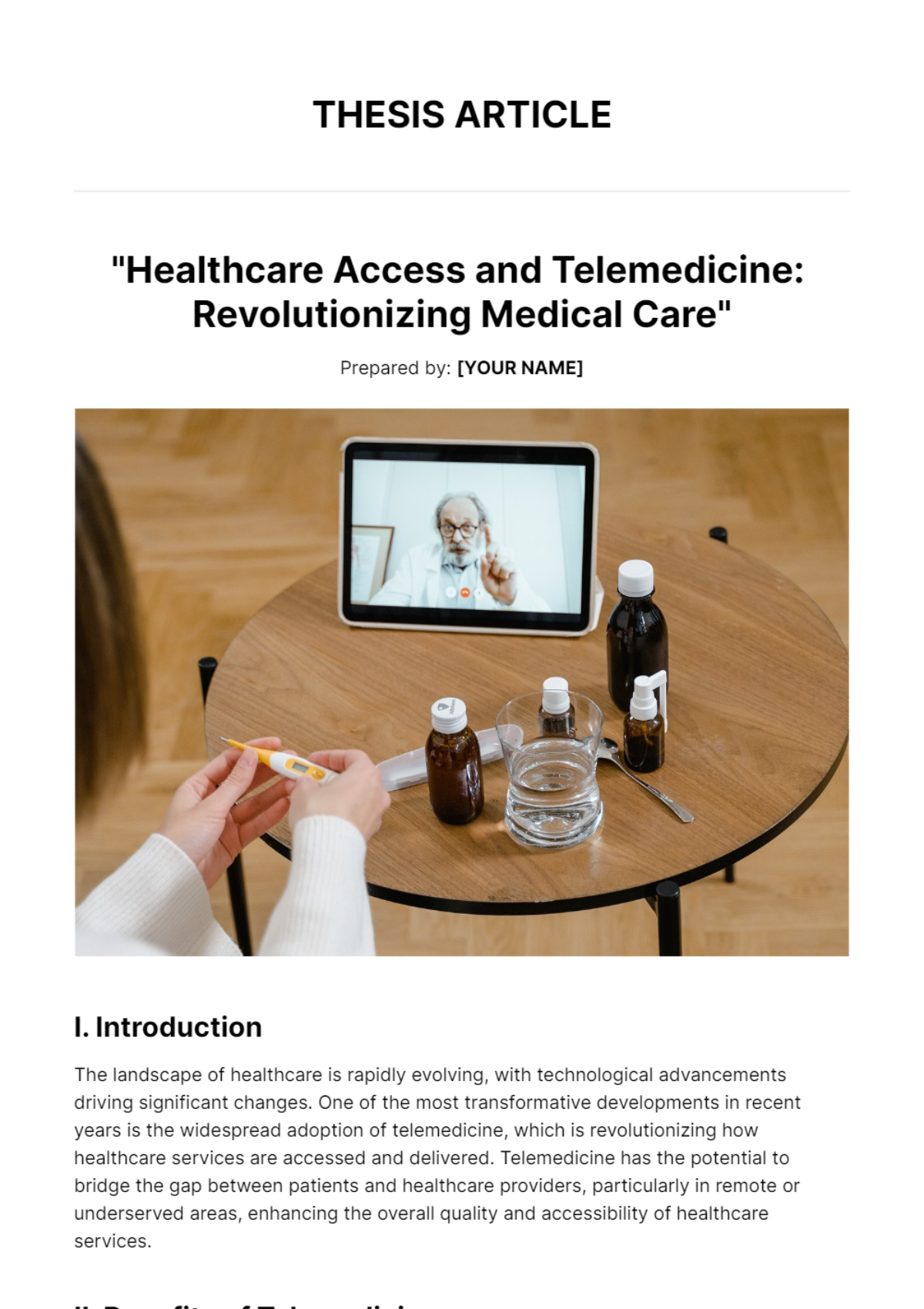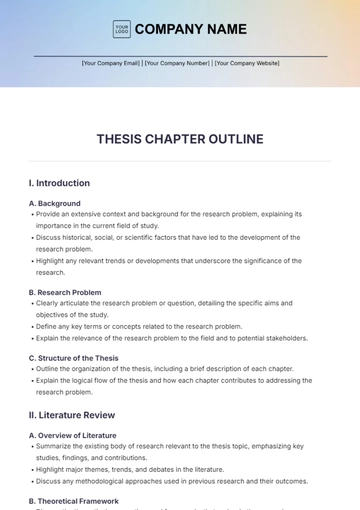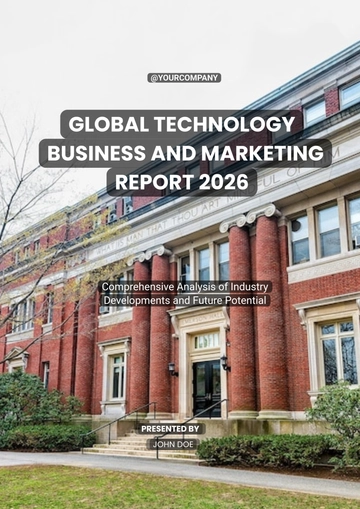THESIS ARTICLE
"Healthcare Access and Telemedicine: Revolutionizing Medical Care"
Prepared by: [YOUR NAME]

I. Introduction
The landscape of healthcare is rapidly evolving, with technological advancements driving significant changes. One of the most transformative developments in recent years is the widespread adoption of telemedicine, which is revolutionizing how healthcare services are accessed and delivered. Telemedicine has the potential to bridge the gap between patients and healthcare providers, particularly in remote or underserved areas, enhancing the overall quality and accessibility of healthcare services.
II. Benefits of Telemedicine
Telemedicine offers a multitude of benefits, making it a game-changer in the healthcare industry:
Benefit | Description |
|---|
Increased Access | Telemedicine enables patients to consult healthcare professionals remotely, breaking down geographical barriers. This is particularly beneficial for individuals living in rural or isolated areas, where access to healthcare services may be limited. |
Convenience and Efficiency | With telemedicine, patients can schedule appointments and receive medical advice without the need to travel to a physical clinic. This not only saves time but also reduces the burden on healthcare facilities. |
Cost-Effectiveness | Telemedicine can be more cost-effective for both patients and healthcare providers. It eliminates the need for in-person visits, reducing travel expenses and associated costs. |
Improved Patient Outcomes | Studies have shown that telemedicine can lead to improved patient outcomes, particularly for chronic conditions. Regular remote monitoring and virtual consultations can help in the early detection and management of health issues. |
Table 1: Benefits of Telemedicine
"Telemedicine is not a silver bullet, but it is a silver lining."
- Jay Sanders, MD., often referred to as the "Father of Telemedicine"
III. Challenges and Considerations
While telemedicine offers numerous benefits, it also presents certain challenges and considerations that need to be addressed:
Technological Barriers: Not all patients have access to the necessary technology or internet connectivity required for telemedicine consultations.
Security and Privacy Concerns: Ensuring the security and privacy of patient information transmitted electronically is crucial. Healthcare providers need to implement robust cybersecurity measures to protect patient data.
Regulatory and Legal Framework: Telemedicine is subject to regulatory and legal requirements that vary by jurisdiction. Healthcare providers must ensure compliance with relevant laws and regulations.
Digital Divide: The digital divide, which refers to the gap between those who have access to technology and those who do not, can hinder the widespread adoption of telemedicine. Efforts are needed to address this divide and ensure equitable access to telemedicine services.
According to the American Telemedicine Association, over 60% of all U.S. hospitals now use some form of telemedicine.
Telemedicine can reduce the number of hospital readmissions by up to 50% in some cases, leading to significant cost savings for healthcare providers.
IV. Future Outlook
Despite the challenges, the future of telemedicine looks promising. Continued advancements in technology, coupled with favorable regulatory changes, are expected to further expand the reach and impact of telemedicine. As telemedicine becomes more integrated into mainstream healthcare, it has the potential to transform the way healthcare is delivered, making it more accessible, convenient, and efficient for patients worldwide.
V. Conclusion
In conclusion, telemedicine represents a pivotal advancement in healthcare, offering unprecedented access and convenience to patients while improving overall efficiency and outcomes. Despite facing challenges such as technological limitations and regulatory complexities, the continued evolution of telemedicine holds immense promise for transforming healthcare delivery on a global scale. As technology continues to advance and healthcare systems adapt, telemedicine is poised to become an integral component of modern healthcare, ensuring that quality medical care is accessible to all, regardless of geographical location or socioeconomic status.
About the Author:

[YOUR NAME] is a healthcare technology enthusiast with a passion for exploring innovative solutions that improve patient care and access to healthcare services. With a background in [YOUR BACKGROUND], [YOUR NAME] is committed to promoting the benefits of telemedicine and its potential to revolutionize healthcare delivery.
Article Templates @ Template.net
































